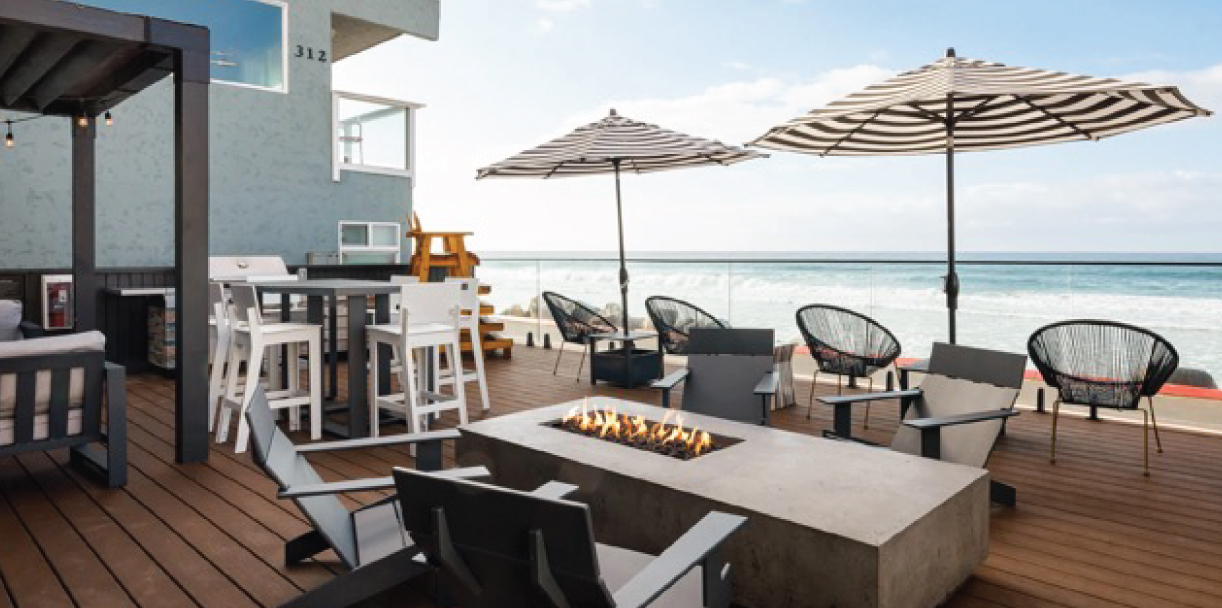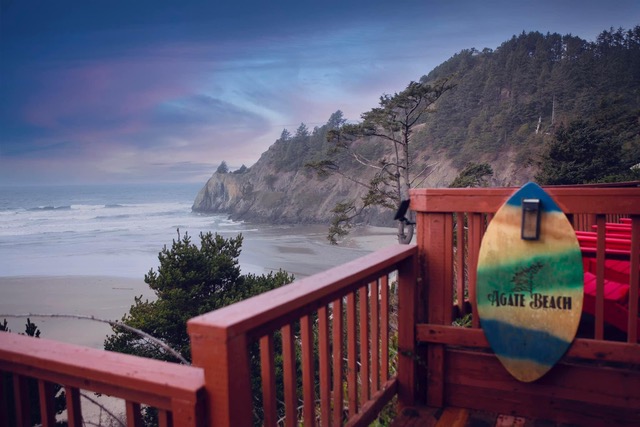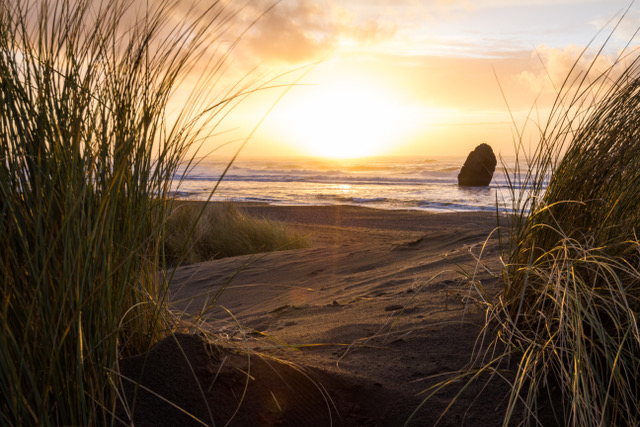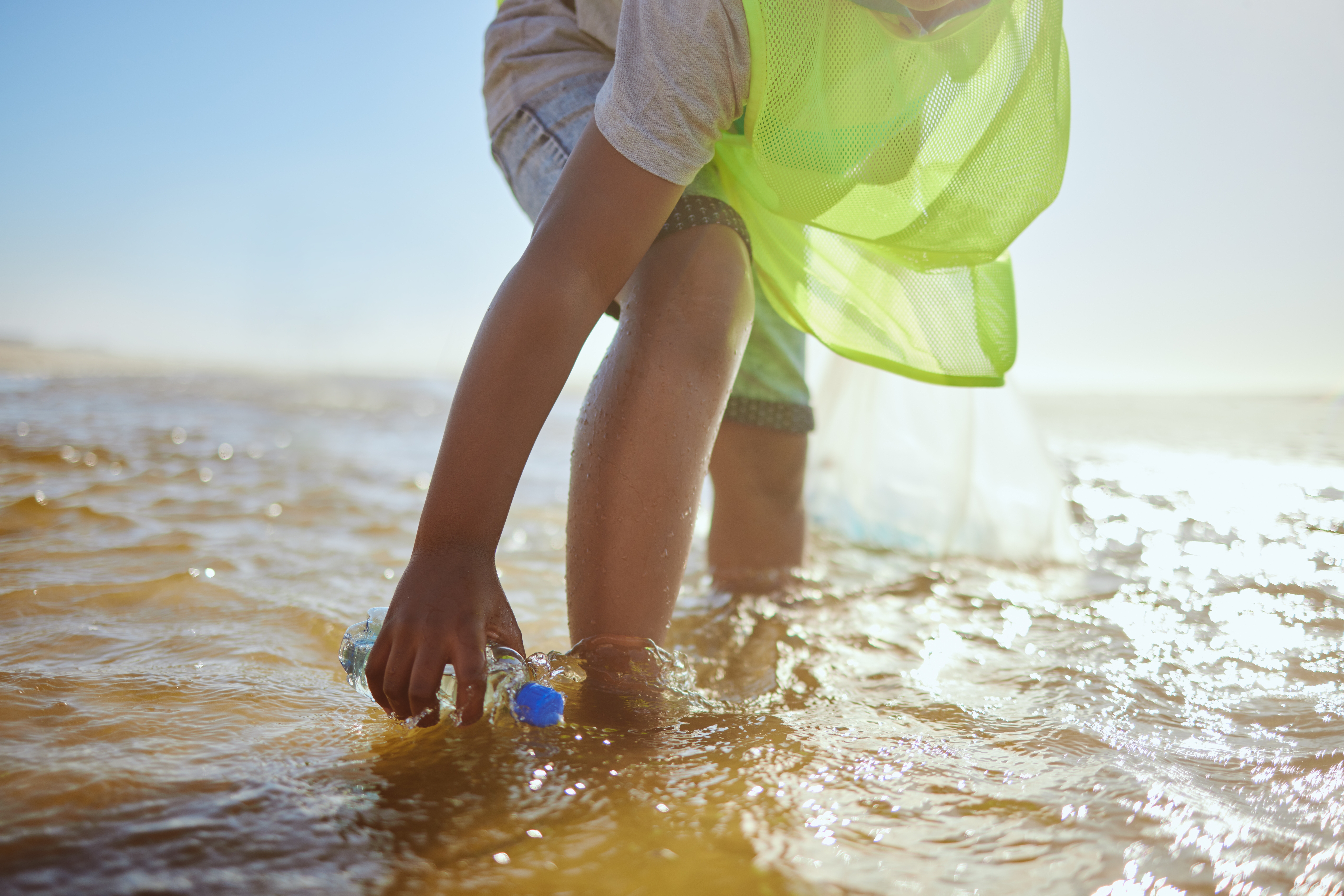It’s no secret why many people choose a summer vacation on the water. There’s tons of fun at the beach, in the ocean, and at your local river. But, between snorkeling and sandcastle construction, parents should teach their children how to preserve the quality of those precious bodies of water. Use the tips below to have fun while getting the message across.
Raising Ocean Advocates: 10 Tips for an Eco-Friendly Family Beach Vacation
WHY WE NEED TO CARE FOR THE WATER
Raising a Responsible Next-Generation
When we talk about climate change and global warming, we often overlook the crucial role of water. Yet, it's a vital part of the solution. Imagine if we all planned eco-friendly summer trips that focused on preserving aquatic ecosystems. This approach could help us raise a new generation of responsible young adults who deeply value the environment.
The water in our lakes and rivers is used for everything from drinking to irrigation to manufacturing and transport. Teach your kids that whenever they go near a body of water, they should think about what they should and should not do to ensure its integrity and how they can leave the spot the same way they found it.
It's vital to start by explaining why protecting rivers and waterways is crucial. The urgency of this issue is highlighted by the fact that these water bodies are home to many fish and food sources that we rely on. As reported by Conservation International, the increasing water pollution in freshwater ecosystems has led to the loss of 84% of our freshwater species, primarily due to human activities that degrade habitats and decrease water quality. This is a fact that should stir our empathy and concern. We must act.
Furthermore, as cited by the Surfrider Foundation, researchers estimate that up to 11 million metric tons of plastic waste enter the ocean annually. By 2025, 11 billion metric tons will have accumulated in the environment.* This pollution impacts our marine ecosystems and wildlife, including seabirds, dolphins, fish, turtles, and whales. Plastic fragments are even displacing plankton as the base of the food chain. It's not just ocean life at stake - plastic contains toxic chemicals that can transfer directly from containers, cups, cutlery, and straws into the food we eat. (*Beachapedia)
1. PLAN AHEAD FOR RESPONSIBLE & SUSTAINABLE TRAVEL: CHOOSE DESTINATIONS THAT CARE
Humpback Whale Spotting with Oceanside Adventures in Oceanside, California; Photo: Kind Traveler
Another way to teach your kids about conservation is by carefully choosing your vacation destination. Choose destinations that actively support responsible travel education and promote destination stewardship. For example, in California, travelers can visit the Visit California Responsible Travel Code, designed to empower travelers with principles that will help keep California beautiful and viable for future generations. Travelers can also find inspiration for travel that gives back by exploring the Kind Traveler x Visit California Every Stay Gives participating lodging and charity partners empowering stays that give back to supporting community and environmental initiatives in destinations
Love Catalina Island's Care for Catalina program encourages travelers to be good stewards of the land and ocean when visiting.
Visit Oceanside in San Diego launched its Love O'Side Responsible Travel platform, encouraging visitors with tips on having a sustainable and kind visit to Oceanside.
For a trip to California's Central Coast, don't miss Visit San Luis Obispo's Keys for Trees initiative, where a portion of every guest stay - with all 42 hotels in San Luis Obispo - will help fund tree planting efforts to help the City meet its carbon neutrality goals by 2035.
The Oregon Coast Visitors Association (OCVA) also shares tips for responsible travel and launched a Travel Impact Calculator to help travelers understand their carbon footprint.
Los Cabos features 25 Blue Flag beaches, a special certification given to beaches, marinas, and sustainable boating tourism operators by the Foundation for Environmental Education. Visitors looking to travel to the area and partake in conservation initiatives are welcomed in a friendly fashion.
2. SEEK ETHICAL ACTIVITIES THAT ARE KIND TO ANIMALS
Another important tip when choosing activities is to avoid attractions that use animals for entertainment. For instance, you can make it a point to protect marine life by avoiding water parks and attractions with live dolphins and other animals used for entertainment. Many of these establishments strip wildlife from the ocean, disrupting their natural habitat and leading to premature deaths. By steering clear of such attractions, you demonstrate your care and concern for the well-being of these creatures and your responsible approach to travel. Remember, the best way to see wildlife is in the wild! Consider taking a local whale or dolphin-watching excursion or hiking with an experienced guide or naturalist.
Travel Kindly Tip: Kind Traveler recently went whale watching with Oceanside Adventures and saw dozens of humpback and blue whales just five miles off the coast in Oceanside, California! Fun Fact: blue whales are the largest animals that have ever lived on Earth, even bigger than dinosaurs, and can live to be 100 years old.
Related: 14 Animal Attractions to Avoid
Always remember the simple motto: Take only photos, leave only footprints. By following this principle, you'll enjoy your travels and positively impact the places you visit. It's a small step that leads to an enormous sense of accomplishment, knowing that you've contributed to the preservation of these beautiful places.
3. CONSIDER LODGING OPTIONS THAT GIVE BACK TO LOCAL COMMUNITIES AND THE ENVIRONMENT
For example, when researching lodging options during the vacation planning phase, you can explore Kind Traveler’s Every Stay Gives Back collection, where every guest stay helps fund a local charity that advances community and/or environmental impact in the destination.
Catalina Island, California
For inspiration for an island treat, discover The Avalon Hotel. It rests in the heart of Catalina Island, located approximately twenty-two nautical miles off the Southern California coast of Long Beach. Guests experience the best of Catalina Island with ocean views, private balconies, and a delicious complimentary continental breakfast each morning.
Oceanside, California
Consider booking a beachfront stay with Marbella or Stay Coastal Vacations in San Diego's Oceanside beach town. Your stay will support WILDCOAST and its dune restoration efforts in Oceanside.
Oregon Coast: Manzanita, Newport, Gold Beach, Pacific City
The Oregon Coast offers opportunities to immerse in unspoiled forests and coastal ecosystems. For stays that give back to protect the ocean and its inhabitants, don't miss Agate Beach Motel in Newport, where a portion of your stay gives back to Oregon Coast Aquarium. In Gold Beach, your stay with Wildflower Inn supports Elakha Alliance, helping to restore sea otter populations. The Headlands Coastal Lodge & Spa in Pacific City donates a portion of each stay to the Wildlife Center of the North Coast. For a quaint stay in the cozy beach town of Manzanita, stay with the Ocean Inn at Manzanita where your stay gives back to support the North Coast Land Conservancy.
San Diego, California
In San Diego, book a stay with the woman-owned, eco-friendly Twelve Senses Retreat in Encinitas and give back to The Changing Tides Foundation, a local, Encinitas-based charity empowering women to protect the planet.
San Luis Obispo, California
Discover the charm of San Luis Obispo with a stay at Hotel Cerro, where your visit supports Visit San Luis Obispo's Keys for Trees initiative, helping to plant trees with ECOSlo with every guest stay. Make a positive impact while enjoying unforgettable experiences.
Sonoma County, California
When protecting local waterways and rivers, consider booking a stay with Dawn Ranch or Highlands Resort in Sonoma County, California. Both are nestled between the magical Russian River and towering redwoods in Guerneville. Through Kind Traveler’s Every Stay Gives Back program, your stay will benefit the Russian Riverkeeper, helping to preserve the Russian River for future generations.
4. ELIMINATE POLLUTION DURING THE TRIP
One way to ensure your vacation is eco-friendly is to visit while creating as little pollution as possible. Your careful planning and conscious decisions about what you’ll bring to the water can significantly reduce unnecessary waste, especially when it comes to plastic. A 2019 study found that out of 370 tons of global plastic, only 9% was recycled. Much of the rest was put into landfills. The problem with landfills is that the chemicals from the plastic can be absorbed into the soil and then into the waterways. By reducing your plastic waste, you can contribute to a cleaner, healthier environment.
5. EMBRACE A ZERO-WASTE & LOW CARBON MENTALITY
While your family may be unable to stop that dreadful practice alone, you can find ways to stop wasting unnecessary plastic. Avoid bringing anything with disposable packaging that you’ll throw away, and pack a reusable water bottle for the same reason. There won’t always be a place to discard trash when you’re near the water properly. Even if there is, it’s far too easy for trash receptacles to overflow and the garbage to get into the water.
There are various other ways to reduce pollution as you travel, including lowering your environmental impact by bringing fewer belongings. Use multipurpose items like a towel that can be used as a washcloth and a way to dry off when you're done. Also, take public transportation or ride bikes instead of renting a car as you go from beach to beach.
6. USE REEF-SAFE SUNSCREEN
Whether you’re on or off the beach, it is also essential to use reef-safe sunscreen. Scientists have discovered that many of sunscreen components harm coral reefs, as these chemicals convert to environmental toxins, contributing to coral bleaching and harming coral health. This is true whether you are wearing these products while swimming or rinsing off sunscreen at your hotel, as all drains lead back to the ocean.
Given the absence of guidelines that manufacturers must adhere to in claiming their product is reef-safe, it is crucial for you as a consumer to conduct your own research and read the labels yourself. This is to ensure that the sunscreen you choose is free of chemicals that harm coral reefs, such as oxybenzone and nano-zinc oxide. Keep in mind that many sunscreens that lack these chemicals may need to be applied more frequently to be effective, but this is a small price to pay for the well-being of marine life.
7. CONSIDER ECO-FRIENDLY BUG SPRAY
Just about everything you do around the water can be done in a more environmentally friendly fashion, including applying bug spray. There are several eco-friendly options that you could seek out, including repellents made with citronella, which has low toxicity, and while it keeps bugs away, it’s safe for the local wildlife. You can avoid using repellent altogether by not wearing perfume and sweet-smelling fragrances during the trip, which attract bugs.
8. REDUCING YOUR FOOTPRINT ALONG THE WAY: LEAVE WILDLIFE, PLANTS, AND ROCKS ALONE
There are various other ways to reduce your overall footprint, leave things how you found them, and ensure the health of our waterways. Think about how you can help while enjoying family activities. If you decide to go diving, leave the wildlife alone, so you don’t disrupt their routines or home and cause potential harm.
You can also reduce your footprint at the beach by respecting the environment and not causing unnecessary damage. Don’t venture into roped-off areas where birds may be nesting.
9. CONSIDER NON-MOTORIZED WATER SPORTS FOR HABITAT PROTECTION
Non-motorized sports are carbon-friendly and are more gentle in ocean habitats. Consider kayaking, canoeing, stand-up paddleboarding, surfing, etc. If you are planning to enjoy motorized watercraft such as boating, consider steps to reduce pollution.
In ecologically sensitive ocean environments, extra care and caution should be considered.
10. CONSIDER OCEAN-FRIENDLY RESTAURANTS CERTIFIED BY SURFRIDER FOUNDATION
The Surfrider Foundation's Ocean Friendly Restaurants program recognizes restaurants committed to eliminating wasteful single-use plastic. It offers a straightforward framework to help them make sustainable choices for our oceans. By supporting these restaurants, you become part of a community that can promote, support, and lift up as examples of success in influencing plastic reduction legislation.
It’s fair to say that preserving our oceans, rivers, and waterways is one of the most important responsibilities we can have in life. The water has done so much for us, so return the favor during your family vacation.
Author Bio: Amanda Winstead is a writer from the Portland area with a background in communications and a passion for telling stories. Along with writing, she enjoys traveling, reading, working out, and going to concerts. If you want to follow her writing journey, or even just say hi, you can find her on Twitter.










